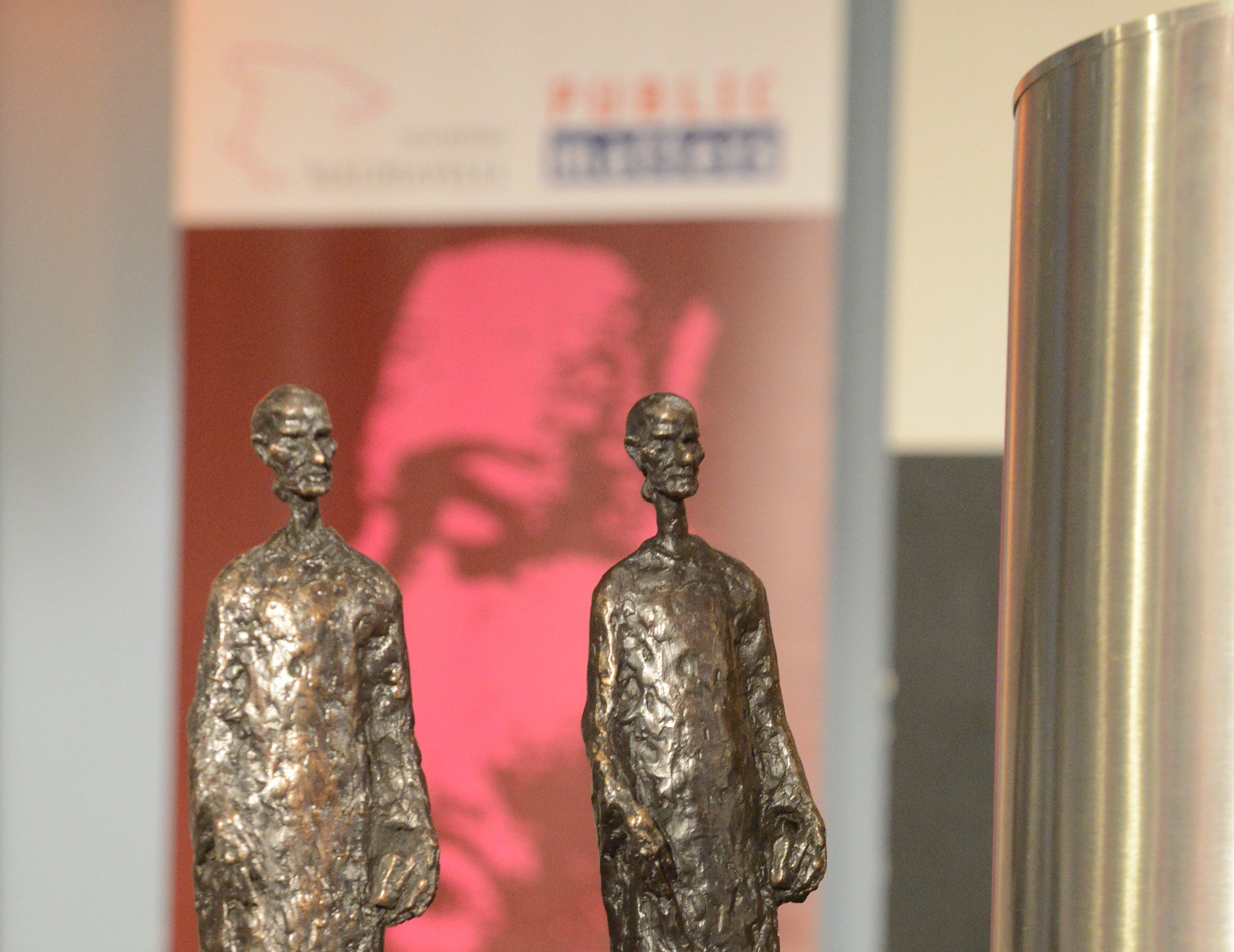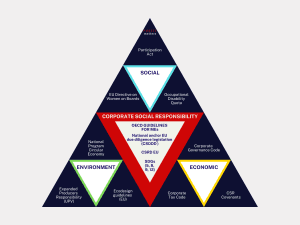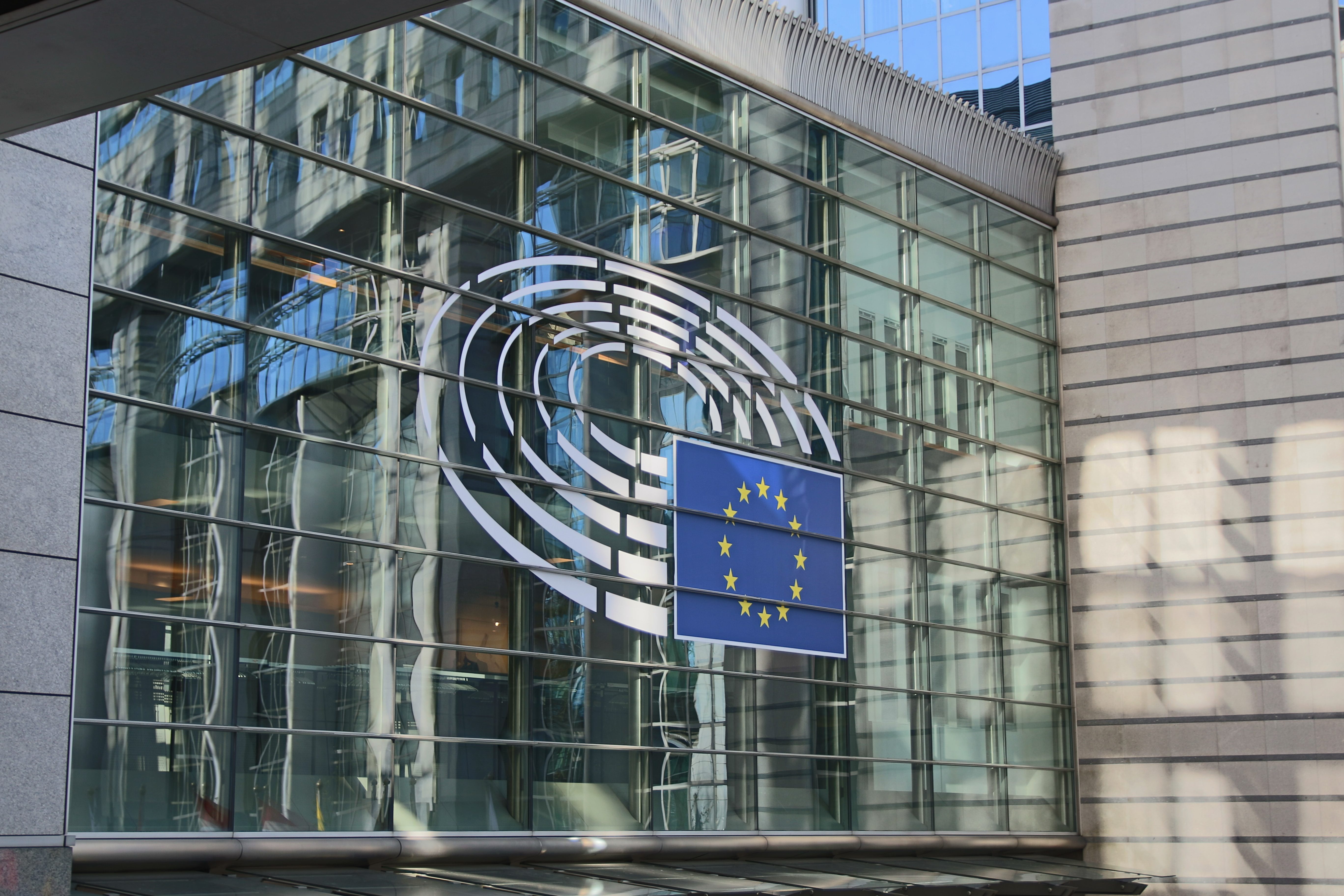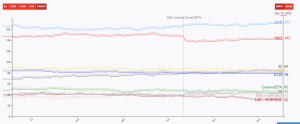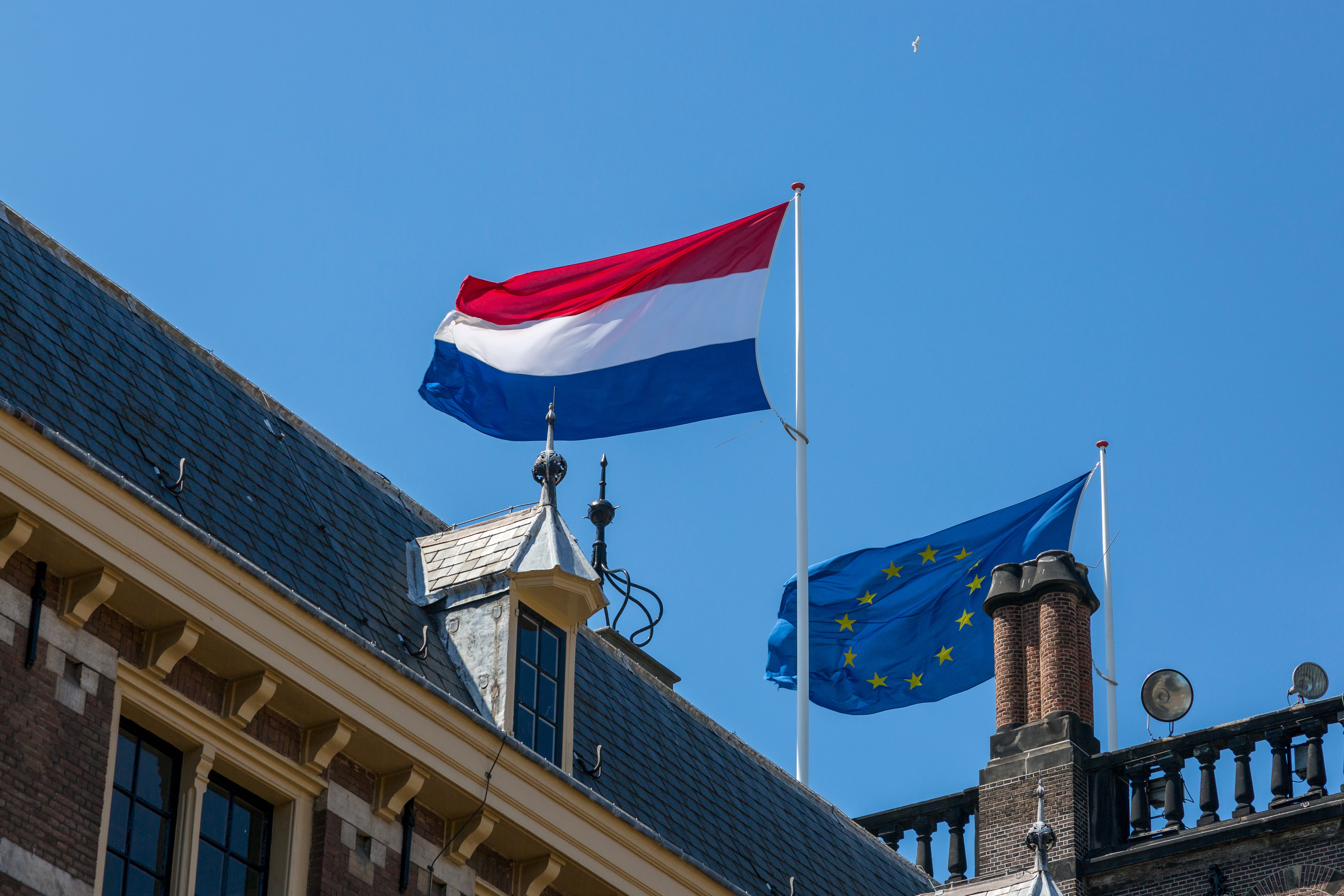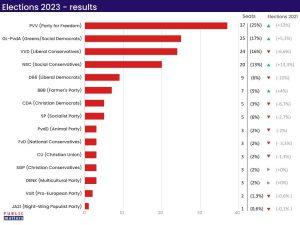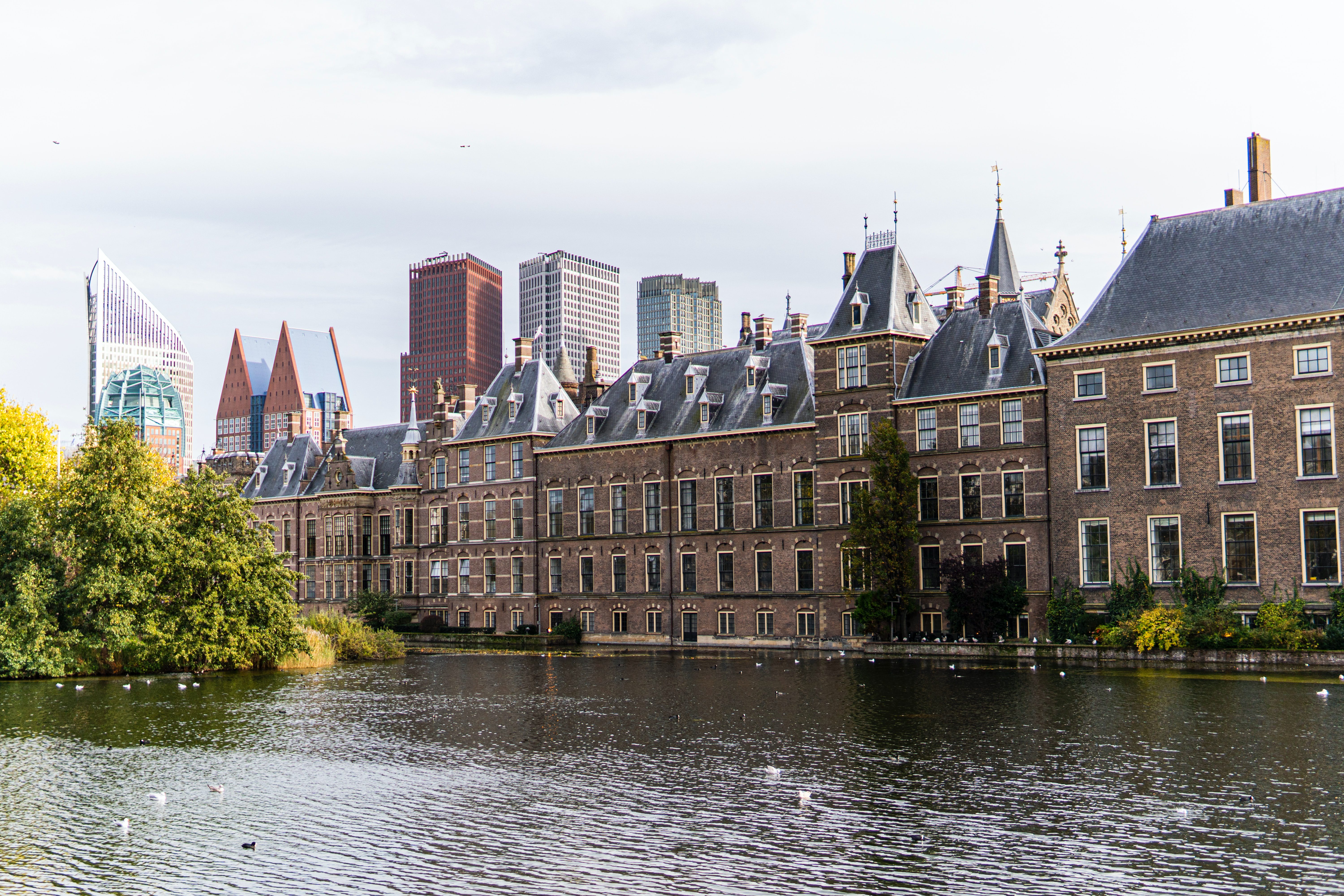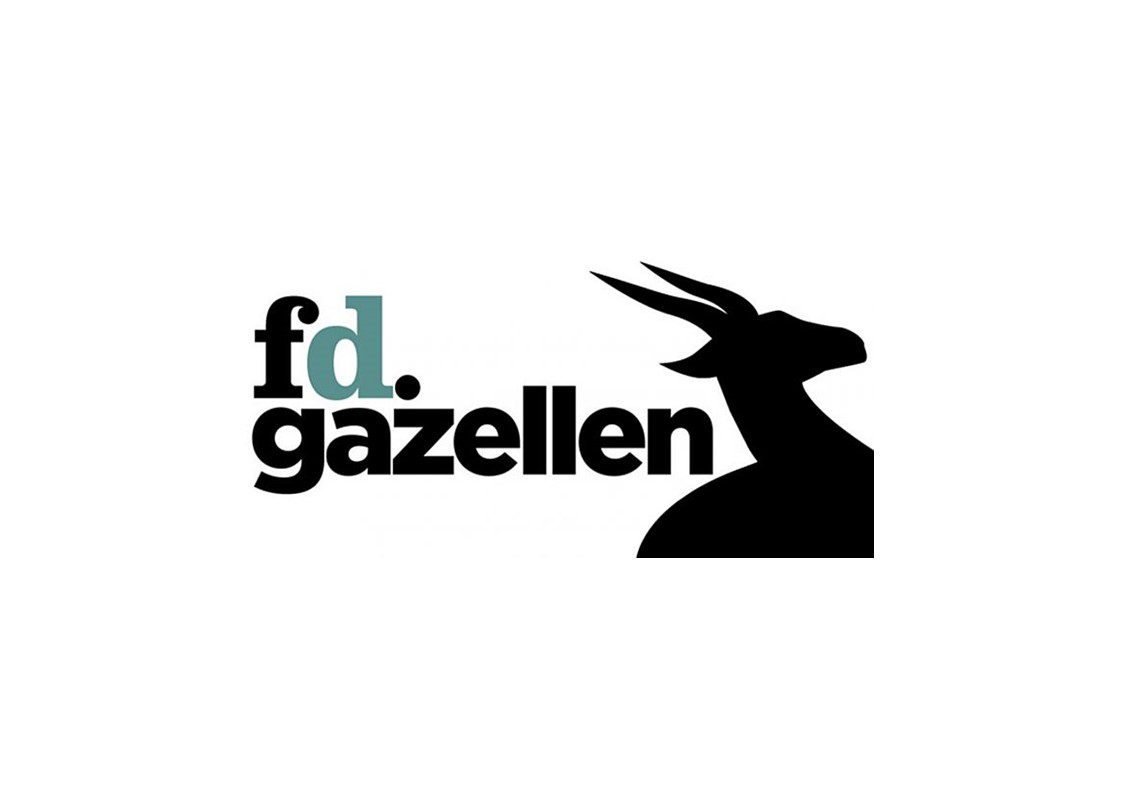In the coming years, establishing effective digital policies will become essential if society is to respond adequately to the increasing impact of various technologies. The minister responsible for digital affairs, State Secretary Alexandra van Huffelen (D66, Democrats), has been working hard on this over the past two years. For example, the interdepartmental Working Agenda on Value-Driven Digitalization, published late last year, forms the basis for how the Netherlands deals with this digitalization battle. Next week we can cast our votes, a decisive moment that is followed by the formation period where important decisions will also be made about digitalization. What is the approach of the various political parties to digitalization?
With every possible coalition still ahead, Valérie Mendes de León and Mike de Wit put the visions and plans from the election programs side by side and highlight the most striking points in this blog.
The Netherlands faces a major digital challenge
Elections or no elections: The Netherlands faces a tough digitalization challenge. In recent years, the European Union has adopted a hefty package of legislation to better regulate the digital world. Such as the development of legislation to tackle the market power of “Big Tech” (DMA, DSA), to ensure secure handling of data at government level (Data Act, DGA), to strengthen cyber security (NIS2, CER) and to guarantee citizens’ rights (AI Act, AVG). But there is even more ambitious legislation in the European pipeline, such as the Cyber Resilience Act (a proposal on cybersecurity requirements for products with digital elements) and the Cyber Solidarity Act (to improve readiness, detection, and addressing of cybersecurity incidents throughout the EU).
It is up to European member states, including the Netherlands, to transpose these laws into national legislation in the coming years. At the same time, in Brussels and in the Parliament they are already struggling with rapidly increasing developments such as artificial intelligence (AI) and disinformation (European AI Act), but also how everyone can keep up in the digital transition.
Key EU legislative initiatives regarding digitalization
| Initiative |
Objective |
Applies in NL from |
| Digital Markets Act (DMA) |
Promoting fair competition and transparency, aimed at regulating the market power of Big Tech. |
May 2023 |
| Data Governance Act (DGA) |
Facilitating to improve data availability in the EU by increasing trust in data intermediaries and strengthening data sharing mechanisms in the EU. |
September 2023 |
| Digital Services Act (DSA) |
Regulating digital services on online platforms aimed at combating illegal content, disinformation and protecting user rights. |
February 2024 |
| Network and Information System Directive (NIS2) |
Providing a standard level of network and information system security in the EU’s critical infrastructure. This includes tightening mandated security requirements, addressing supply chain security, streamlining reporting requirements, strengthening oversight measures and introducing enforcement requirements with harmonized sanctions across member states for more sectors. |
October 2024 |
| Critical Entities Resilience Directive (CER) |
Improving the protection of public and private organizations from physical risks, such as the consequences of (terrorist) crimes, sabotage and natural disasters. |
End of 2024 |
| Data Act |
Establishing a harmonized framework for data sharing, regulation of data access, interoperability and conditions for access by government agencies. |
Early 2025 |
| AI Act |
Regulating safe, transparent, traceable, non-discriminatory and environmentally friendly AI systems that are supervised by humans and responsive to future developments. |
End of 2025 (when agreed) |
In addition to developments at the EU level, Dutch political parties also have their own ideas and approaches when it comes to digitalization. Broadly speaking, four main themes emerge in the election programs of when it comes to digitalization. These include strengthening digital cooperation, increasing investment in cyber security and resilience, boosting innovation to ensure the Netherlands’ digital lead, and more effective regulation of “Big Tech.” These themes form the core of the following sections, in which we elaborate on the specific approaches and proposals of the different political parties.
Modern technologies: a double-edged sword of opportunities and risks
Not unexpectedly, opinions differ on how to deal with new technologies. Quite a few parties recognize opportunities for business to innovate in and with new technologies and want to encourage this. CDA (Christen Democrats), D66 (Liberal Democrats), VVD (Liberal Conservatives), Volt (Pan-European Democrats) and ChristenUnie (Christian Union), for example, recognize the importance of investing in innovation and automation to prepare the Netherlands and Europe for the economy of the future. Among other things, they talk about promoting quantum technology, photonics and AI to retain, develop and attract top sectors. Quantum is a notable hot topic, with VVD calling for a national quantum action plan and D66 wanting to work on a quantum-proof standard in Europe to regulate the development of quantum technology on a European level as well.
At the same time, parties such as NSC (Centrist Conservatives), PvdD (Animal Party) and SGP (Christian Conservatives) are also looking at the dangers of new technologies. NSC actively calls for more attention to cyber resilience and better security of government data. Too rapid development of new technology can cause the government to be insufficiently prepared, poses PvdD.
Artificial Intelligence
With the advent of generative AI last year, a form of AI that allows someone to automatically generate texts, images, audio and other content with ChatGPT, for example, AI is a prominent topic in many election topics. The lack of national legislation on this will soon be filled once the European AI Act comes into effect, but Dutch parties are preparing for national regulation. In particular, the programs address the opportunities and risks of AI. Concrete suggestions include a watermark for AI-generated content (VVD, PvdD, NSC), control through an algorithm register (NSC, D66, GroenLinks-PvdA (Green and Labour Party Coalition), but the importance of protecting human rights is also stressed (GroenLinks-PvdA, D66, NSC).
At the same time, parties such as VVD and D66 again also see the opportunities of technologies such as AI: VVD is betting on room for experimentation to broaden knowledge and D66 wants to put sustainable and equitable AI at the center of a national AI strategy.
Consensus on importance of cybersecurity and digital resilience
Broad consensus can be found on strengthening cyber security, interesting to read is where the different parties place the emphasis. VVD, not entirely surprisingly, talks explicitly about making entrepreneurs and the SME more resilient. Volt also mentions this but at the same time wants to strengthen knowledge institutions. BBB (Farmer-Citizen Movement) strengthens the position of the National Security Council and proposes a National Data and Technology Council to set priorities and strategy for the digital landscape. NSC proposes something similar, in the form of a central authority, which will be in charge of promoting digital resilience and merge the overlapping tasks and roles between different organizations.
Parties across the board recognize the importance of improving the digital skills of the Dutch and making them more aware of cyber threats. Volt, BBB, BIJ1 (progressive left wing party) and NSC are committed to addressing digital literacy in schools. GroenLinks-PvdA and PvdD also include extra policy on media literacy to protect people from disinformation. And to maintain employment in the Netherlands, D66 and JA21 advocate training enough young people for digital jobs.
Digital infrastructure and strategic autonomy
National digital sovereignty is a broad topic in election programs, in response to the political hot topic of strategic autonomy. Here the emphasis is on protecting personal data and government data. To strenghten this, CDA, NSC and VVD focus on the development of a “national cloud,” where government data is stored at its own location or at a national provider. D66 encourages the development of a European Cloud as a counterpart to U.S. Cloud companies. Moreover, D66 and GroenLinks-PvdA name the importance of a public alternative to services and platforms of large Tech companies.
This commitment to national alternatives is significant step toward strategic autonomy and independence of countries with an offensive cyber agenda. In addition to autonomy over data storage, parties such as ChristenUnie, VVD and D66 mention the importance of better protection of vital infrastructure such as water and electricity supplies, with D66 explicitly mentioning that the Netherlands must be able to operate independently especially in healthcare and education.
Solid commitment required from both the new cabinet and the House of Representatives committee
Despite the visible challenges, digitalization plays a secondary role in this election. After the arrival of a Standing Committee on Digital Affairs in the House of Representatives (2021) and a State Secretary for Digitalization (2022), participation in this Committee proves important for only a small number Members of Parliament. With the prospect of a separate budget for Digital Affairs in early 2024 (which is now part of the budgets of the ministries of Justice and Security, Interior and Kingdom Relations, and Economic Affairs and Climate), the Committee may get more mandate. It is also possible that the arrival of a minister of/for Digital Affairs instead of state secretary – desired by as many as 9 parties including D66, GL/PvdA, SP and ChristenUnie – will facilitate this.
The ambitious European legislative initiatives and the extensive wish list of the Dutch political parties regarding digitalization go hand in hand with the increasingly rapid and growing development of new digital technologies, which have important social consequences.
This calls for a firm commitment from both the new cabinet and parliamentary committee. Curious about future developments and what a new coalition can do in this regard? Contact us!

